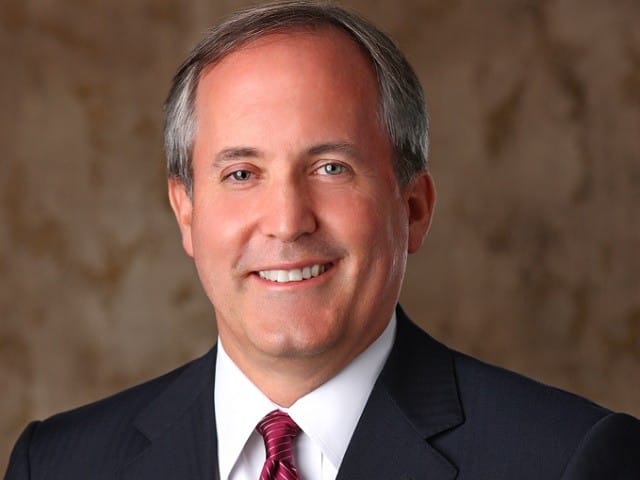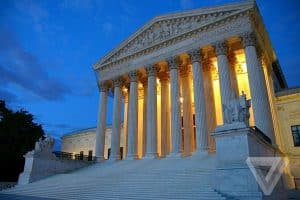Tuesday during an appearance on FNC’s “Hannity,” Texas Attorney General Ken Paxton elaborated on the merits of a lawsuit his state of Texas has against Georgia, Pennsylvania, Michigan and Wisconsin, claiming those states violated the election guidelines set by the U.S. Constitution in the 2020 election.
Paxton also noted that when a state sues another state, or in this case, multiple states, the case goes directly to the U.S. Supreme Court as the court of jurisdiction.
HANNITY: Here with more now is the Texas Attorney General Ken Paxton.
First of all, look, I have got it all right here, highlighted all of it, read it cover to cover. Well done.
I really — first of all, why you decided to engage in this? Tell us the law and the constitutional principles that are at stake here.
KEN PAXTON (R), TEXAS ATTORNEY GENERAL: First of all, you did a fantastic describe describing our lawsuit.
It’s really important to my state that my voters be represented. And if other states don’t follow the Constitution, and if their state legislature isn’t responsible for overseeing their elections and we have other people who are not under the Constitution supposed to be doing this, it affects my state.
And so, our job is to make sure that the Constitution is followed and that every vote counts. In this case, I’m not sure that every vote was counted, not in the right way.
HANNITY: Let’s go to the heart of this. Now, number one, let’s start at the beginning. Article 3 of the Constitution listed a very small number of categories of cases that the Supreme Court has original jurisdiction. In other words, this does not have to start at a lower court. Explain that in the context of now their response to your suit earlier tonight.
PAXTON: So, it’s really an important point that you bring up. In a state on state suit, the only place to go is the U.S. Supreme Court. We can’t be heard anywhere else. Other lawsuits start at the district court level and they have a right to be heard at least once, whether they have a good case or bad case.
So, our request is we want to be heard. The only place we can go is the U.S. Supreme Court.
And so, we’re pleading with the Supreme Court, please hear our case. Give us a chance, at least, to argue what we think is right. We want to argue the Constitution.
HANNITY: Okay. Now, the Supreme Court has opined in the past that it may decline to accept the case. But, you know, as we watch all of this unfold today — look, we had a different possible outcome today.
And that is, you know, we were waiting to see if the court would or would not hear the case and now we have a briefing scheduled. Correct?
PAXTON: No, that’s a good sign. I really appreciate the court has asked the other states to respond so we have a chance, hopefully after they respond, to go to the court and make our arguments on both sides, and at least let the Supreme Court make a decision on what is the law in this case? A question that they’ve never answered as it relates to the facts that we’re presenting.
HANNITY: This is the point now. This is where you go into very specific detail about Article 2 of the Constitution and how they violated what we call the Electors Clause when executive or judicial officials in states changed the rules of elections or governing elections. That is constitutionally as clear and unambiguous as any in the Constitution, that there is one body that has that constitutional authority and that would be the state legislatures.
PAXTON: Sean, you make a really important point here. It is the responsibility of state legislatures, per the Constitution, to set the rules for election of electors.
In this case, those were overridden in the four states we’re talking about, were overridden by other official, whether they were judges or other governmental officials. And that’s not the way our Constitution works. That’s the challenge we have in front of the court.
Can this be overridden by people who are not responsible under the Constitution for doing this?
HANNITY: Mr. Attorney General, can you explain how the Electors Clause in Georgia, Michigan, PA, and Wisconsin were violated?
PAXTON: Yeah. So, in almost all of these cases that we have — we have states that allowed mail-in ballots in cases they were not supposed to. They allowed for non-signature verification, which is really important. So when you request a mail-in ballot, you have to sign for that application and then they’ll verify when you send your ballot in on a sleeve of the ballot, usually they’ll verify that signature to ensure those two signatures match.
Well, if you just waived those requirements, you have no way to go back and verify that the person that requested the application is the person voting. That’s a pretty important thing when in Pennsylvania you go from 233,000 mail-in ballots four years ago to 2.5 million and a difference in the election was only 81,000. That’s a very important issue to ignore.
HANNITY: What’s fascinating about this suit is that at no point do you even have to go to the area of proving fraud, which I think was proven in a lot of these states. That’s separate and apart. And those cases run independently in a lot of the cases we’re talking about.
But let’s talk about the second constitutional violation that you point out in your suit. And actually, you rely on the landmark case of Bush v. Gore where the Supreme Court held it violated the Equal Protection Clause and the 14th Amendment, and that when one Florida county treated ballots one way, that was, you know, chad swinging, hanging, perforated, pimpled, and dimpled, and they did it differently from county to county, and voters had the constitutional right to have all ballots in the state of Florida treated equally county to county. Explain how that comes into play in this suit.
PAXTON: Well, I think that explains the wisdom of the Constitution, requiring that a statewide body of legislators make the rules instead of allowing county by county distinctions that are different where people are treated differently in different states. And I think that was part of the genius of what the founders put in place, is making sure that everybody in the state was at least treated the same.
In this case, in all four states, we have county by county distinctions that treated voters differently. We, therefore, have unreliable results, and that’s a problem.
HANNITY: You also talk about remedy in the lawsuit. And you’re asking the Supreme Court to remand the appointment of electors in these four states back to the state legislators, and there’s even a McPherson Blacker case of 1892 that I would argue probably was precedent-setting in this regard as well.
Am I right about that?
PAXTON: No, you’re absolutely right. And this is — was traditional in our country. It was not uncommon for a legislative body to elect their electors.
So, we’re saying, hey, look, the results here — we can’t go back and let the genie back in the bottle, because we don’t know how to match up signatures anymore because they were separated from ballot. Since we can’t go back and do that, we want to go back to the legislature and let them make a decision since they were elected by the people of their states.
HANNITY: All right. Mr. Attorney General, fascinating. It’s going to be an interesting week to watch, and hope they have the courage. Thank you, sir.



